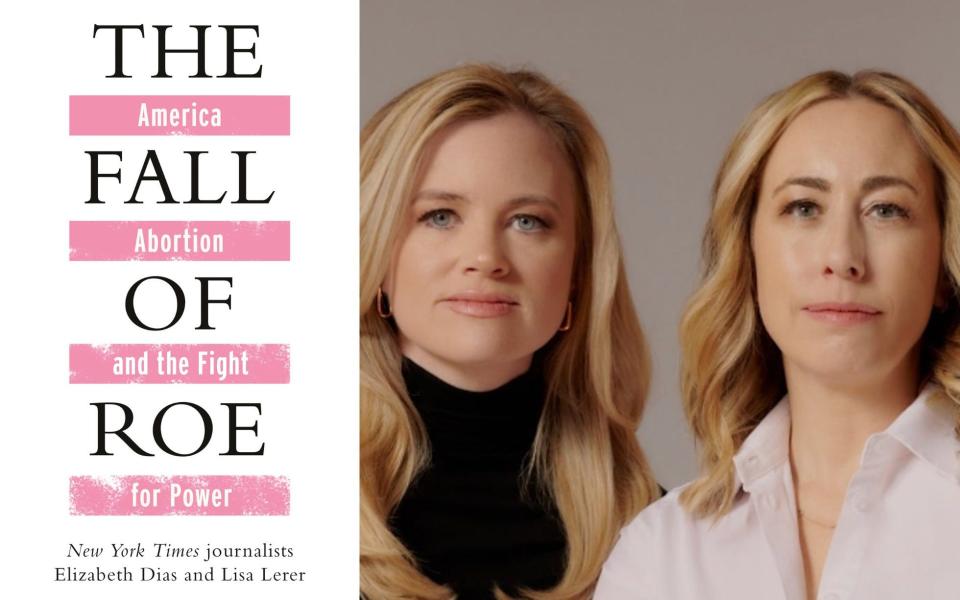How America cancelled the right to abortion

On June 24 2022, after nearly 50 years, American women lost the right to abortion. In legal terms, the US Supreme Court ruled that individual states wanting to regulate the procedure could go ahead: the right to abortion was not constitutionally guaranteed. “Roe v Wade”, the landmark 1973 decision of that same Supreme Court, was thus struck down. The decision was momentous. Former president Barack Obama – who was fond of quoting Martin Luther King Jr’s line “the arc of the moral universe is long, but bends towards justice” – was shocked. So was Hillary Clinton; so was Planned Parenthood, the nation’s chief abortion provider; so was most of liberal America, and the majority who supported women’s “right to choose”.
How did this happen? The Fall of Roe, by the respected New York Times journalists Elizabeth Dias and Lisa Lerer, tells the story. If legal arguments around anti-abortion and pro-choice arguments sound dry, let me assure you that their book is not: it’s a rollicking read, full of complicated but passionate advocates on both sides. It’s a tale of religion, power, politics and ultimately of the position of women in American society; an account of how a driven minority can triumph over a complacent majority. It’s riveting.
I must declare that for me, a woman’s right to terminate a pregnancy is for her and her alone – not the state, and not the church. If abortion is made illegal, abortion does not stop. We know that women are driven to dangerous backstreet “abortion providers”. If anyone has moral objections to abortion, that’s between them and their god; why their views should be pushed onto others, I don’t understand.
The majority in Britain are pro-life, with some disquiet about late abortions, of which there are only a tiny number – and if you read the circumstances in which they occur, as I have, they are often sad beyond words, involving horrific domestic violence or severely impaired foetuses. But we are not America, a land in which abortion has long been a political football for the Republicans and the Democrats, leaving organisations such as Planned Parenthood stuck in the middle.
American liberals had tended to think, since 1973, that the law was settled; yet the anti-abortion movement had kept working to overturn it. Some of this impetus came from deep faith – an unholy alliance of Catholics and evangelicals – but much of it came from political opportunism. In Dias and Lerer’s forensic examination, all sorts of allies turn up on the anti-abortion side, from the billionaire Koch brothers, who seem to have no skin in the game other than wanting to see a low-tax Republican low-tax triumph, to Donald Trump himself, who begins by being vaguely pro-choice, but ends up talking about executed babies and full-term infants ripped out of wombs, spreading awful myths because he needs the support of Right-wing Christians.

What’s most striking is the powerful, long-standing network of activist groups working not just to stop abortion rights, but ultimately all contraception. This is Handmaid’s Tale stuff. For such people, it’s a battle of biblical proportions: they are the David to the liberal Goliath. What they do, deliberately and cleverly, is turn the issue of abortion into one of civil rights – the supposed rights of the unborn child. Using overt untruths, social-media memes, and propaganda such as the horrific and badly cut film The Silent Scream, they work relentlessly to spread their message.
Also in the frame are a new breed of fired-up conservative women, taking on the likes of Hillary Clinton and other liberal doyennes. Kellyanne Conway, senior adviser to Trump during his presidency, describes her gang as “Young. Lively. Stylish. Opinionated. Thin.” They work the Republican men like glove puppets. Conway, remember, coined the concept of “alternative facts”, and she would feed prevaricating Republicans such facts on the pain of foetuses, and the harvest of their organs.
Those fighting back included the wondrous Wendy Davis, a Texan politician who filibustered a proposal to outlaw abortion in the state by talking non-stop for 13 hours, aided by a catheter and a back-brace. The pro-choice side seemed for a while to be winning; yet they became mired in rows about race, intersectionalism and trans people, and ended up divided. And fundamentally, they had always been in denial. Even their heroine, the Supreme Court judge Ruth Bader Ginsberg – known to her online fans as “the notorious RBG” – insisted that the right to abortion would remain standing, as America had come to see it as foundational.

When Ginsberg died in 2020, Trump had the opportunity to replace her with a judge who thought differently. Step forward Amy Coney Barrett, who would in 2022 join the 6-3 majority to overturn Roe v Wade. Soon, the Obama landslide of 2012 was a distant memory. The arc of progress had flopped. Women’s reproductive rights have since fallen across the states like dominoes: South Dakota, Oklahoma, Alabama.
Dias and Lerer’s telling of these events is gripping. Threaded through the politics are tragic stories: pregnant migrant women who have been raped, women forced to carry unviable foetuses to term. And it’s a salutary tale to anyone interested not simply in women’s rights but political strategy too. All the marches and “pussy hats” and Planned Parenthood fundraisers gave the illusion of resistance, but the rights that American women took for granted would nonetheless soon be gone. The Fall of Roe illustrates how women around the world must never be complacent. All the rights for which women have fought can be taken away if they aren’t constantly defended. Every political strategist should read this book and wonder. Every feminist should read it and weep.
The Fall of Roe is published by Manilla Press at £16.99. To order your copy, call 0808 196 6794 or visit Telegraph Books

 Yahoo News
Yahoo News 
